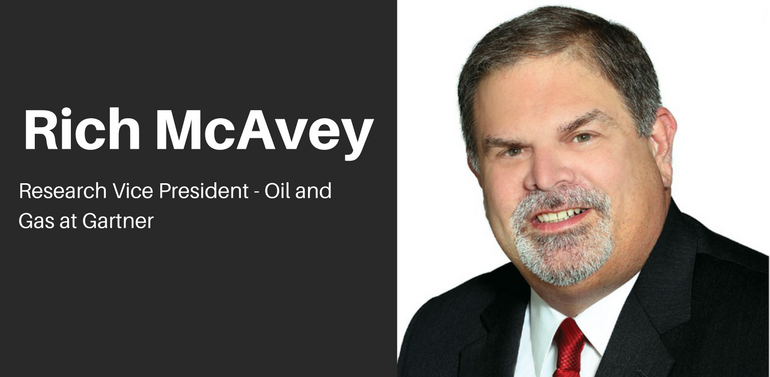Oil & Gas
Using Big Data For Smarter Decision Making

Probably the second big area is the ability to reduce the learning curve time. So by being able to collect all the data and carry out analytics we can innovate faster and improve operating practices faster. This is something we’re seeing really beginning to happen – maybe over the last 18 months – and we’re seeing tremendous results.
Implementing real time big data analytics will be the next challenge facing the development of digital oilfields. What progress has been made in that area and the area of data analytics in the middle east?
First, I have to clarify that that big data and analytics are different things. Big data is the volume and type of data. Engineering design data is not new, back office operational data is not new, but it’s the operational technology data that is brand new and hugely valuable. And we’re just learning it’s potential now.
As for the analytics side of it, we’ve been doing analysis since the beginning, but it’s becoming much more sophisticated than ever before. We look at it in two groups, citizen data scientists which comprise engineers, operators and technicians who are just as good with sophisticated analyses. If you can give them the data, the tools and the ability to collaborate, they can make amazing things happen. And that’s how operating cost reduction is happening really quickly in this industry. But some problems are really tough and you need a professional data scientist with very advanced quantitative skills to tackle those. And that tends to be subsurface analysis, or optimization of specialised equipment like refineries and natural gas trends. So it’s a little combination of them all.

With oilfields needing to digitalise various other aspects as well, especially information technology architecture of unconnected nodes, what is being done in that respect here?
The first thing that happens is if you look at the architecture that’s in place today, is that it’s very inefficient. There are multiple channels of operational data competing for the same pipeline of satellite connectivity to remote locations. And they don’t work together, sometimes it’s different vendors owning different channels.
There’s too much overhead, and it’s not optimised. Hence it’s artificially reducing the amount of effective communication capacity you have in the field. That has to all get cleaned up and consolidated into one sized, optimised, connectivity line, back to the headquarters. This is the sort of thing that telecommunications companies have solved years ago, now oil & gas companies have to do it to their sites. But that won’t be enough because we’ve started to generate so much data, that the next thing that’s already starting to happen is the ability to push analytics and autonomous control out into the field. It’s not about trying to bring back all the data but trying to do some of that work out in the field.
That’s sort of new and it’s scary to be honest because you are now trusting things you can’t see what they’re doing all the time. So there’s a risk management aspect of these things and it’s part of a cultural change and we need to have the right governance to control the liabilities over that. But that’s happening very quickly just because the value of that data and the use of it is so high.
How do we make sure that the information we are collecting has visibility across the board of stakeholders and the processes go across organisational boundaries?
-

 Banking & Finance2 months ago
Banking & Finance2 months agoOman Oil Marketing Company Concludes Its Annual Health, Safety, Environment, and Quality Week, Reaffirming People and Safety as a Top Priority
-

 Economy2 months ago
Economy2 months agoPrime Minister of India Narendra Modi to Visit the Sultanate of Oman on 17-18 December
-

 News2 months ago
News2 months agoJamal Ahmed Al Harthy Honoured as ‘Pioneer in Youth Empowerment through Education and Sport’ at CSR Summit & Awards 2025
-

 Economy2 months ago
Economy2 months agoOman’s Net Wealth Reaches $300 Billion in 2024, Poised for Steady Growth
-

 News2 months ago
News2 months agoIHE Launches Eicher Pro League of Trucks & Buses in Oman
-

 News2 months ago
News2 months agoLiva Insurance Honored with ‘Insurer of the Year’ Award for 2025
-

 OER Magazines1 month ago
OER Magazines1 month agoOER, December 2025
-

 News1 month ago
News1 month agoAI Security Conference 2025 Hosted by Securado Highlights the Changing Cybersecurity Landscape































You must be logged in to post a comment Login